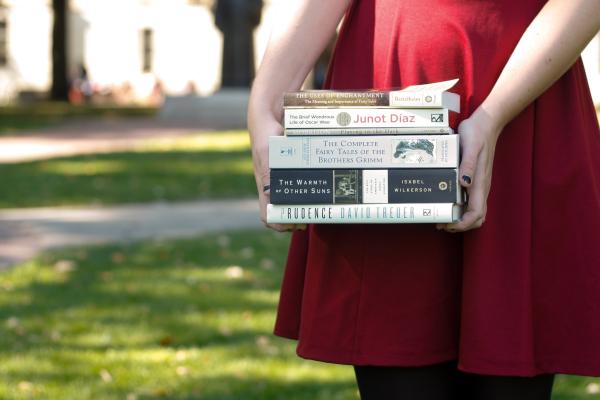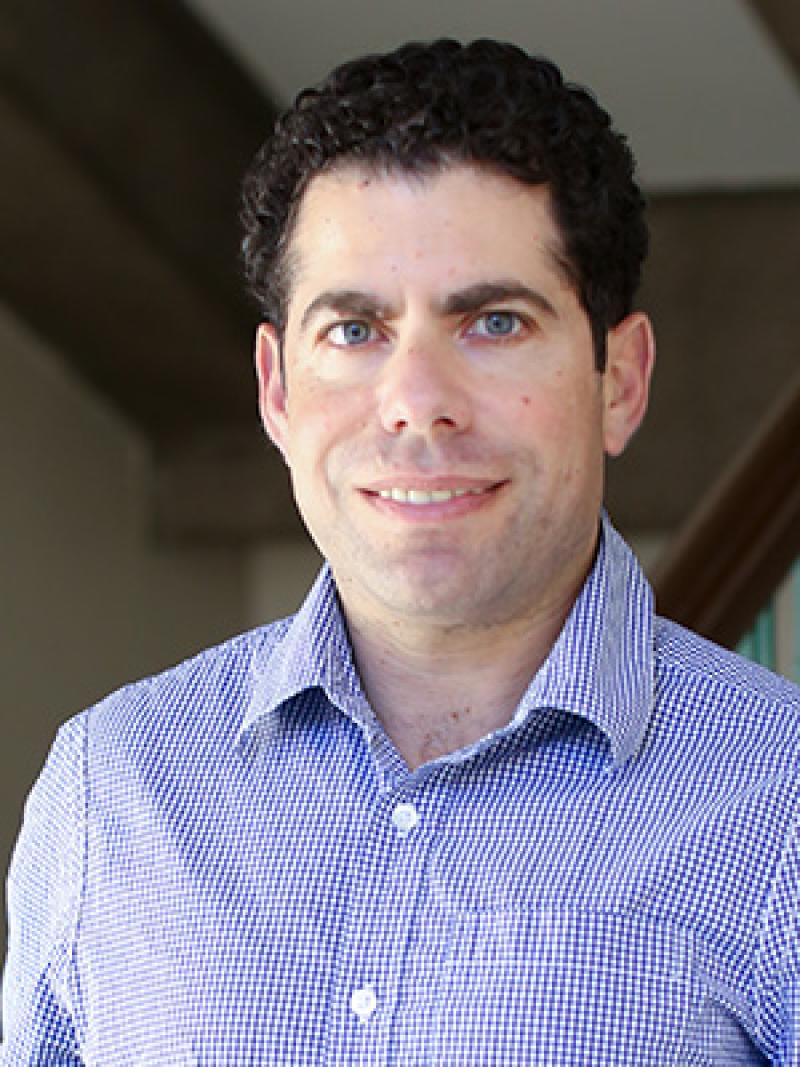Humanities Beyond the Classroom Walls


“Maurice and I wanted to create a learning environment where nontraditional students could learn about the humanities and develop confidence in their critical reading and writing skills, as well as their skills at oral exposition, in a unique way,” said Reitter. “And we wanted to make it affordable and accessible.”
And so, Introduction to the Humanities: Our Journeys Our Selves! took shape. The course itself is a journey — with readings and writing exercises designed to introduce students to the journeys of others, while challenging them to give words and shape to their own journeys. Selected readings for the course included: Playing in the Dark (Toni Morrison), The Brief Wondrous Life of Oscar Wao (Junot Díaz), The Odyssey (Homer), Prudence (David Treuer), Bambi (Felix Salten) and Grimm’s Fairy Tales.
In August, armed with funding from Ohio State’s Office of Diversity and Inclusion (ODI) and support from the Department of Comparative Studies, Reitter and Stevens offered Introduction to the Humanities: Our Journeys Our Selves! to their first class of nontraditional students, the parents of students in ODI’s Young Scholars Program (pre-college development program for academically gifted first-generation students with financial need from urban school districts in Ohio).These parents, for the most part, have little or no college experience but are interested in earning a college degree.
Benisha Wright places a high premium on education and was looking for some guidance in preparing her daughter for college. At a pivotal point in her own life journey — moving into her 30s and looking for new career paths — Wright enrolled in the course to stretch her abilities and step outside her comfort zone.
“The books we read were and are awesome,” said Wright. “They helped me to seek really who I am and what I want to accomplish in life. Our class conversations were enriching and challenging; it took a lot of looking deeper to discover issues that were not in plain sight.”
Dionne Ball, another student in the course, has a son who currently is an undergraduate student at Ohio State; her other sons are not yet in college. All were supportive of her going back to school.
“I thought it was a great opportunity and it could help me determine if I am ready to go back to school to further my education,” said Ball. “It made me think of my own journey and it was a good thing at this time in my life.”
The class, comprised all of mothers of Young Scholars, met every Tuesday and Thursday evening during the fall semester from 7:30-9:30 p.m. at the Knight House. College credit for the course was provided at no cost, along with stipends for books, transportation and child care.
“The one thing that struck me about this class was the degree to which these women were really committed to being here," said Stevens. "There was something really affirming going on in these classes.”
And this course, while not traditional, was far from a book club.
“These women tackled some very, very challenging material,” said Reitter. “From Homer’s epic poem to works of literary criticism and a literary narrative by one of the great child psychologists of the 20th century. Over the course of 16 weeks, they challenged themselves and one another to find and develop their voices and self-narrative.”
At the same time that Reitter and Stevens were teaching the Tuesday/Thursday class, they taught a slightly different version of the course to participants in CATCH, a treatment program of the Franklin County Municipal Court that Stevens has been involved with over the last two years. CATCH — Changing Actions To Change Habits —provides treatment as an alternative to incarceration for persons with multiple solicitation arrests and for women caught in the trade of human trafficking.
A year ago, Stevens, along with Tracie McCambridge, educator for Docent and Teacher Programs and creator of the Art on the Brain program at the Wexner Center for the Arts and Robin Gieseler, lead instructor at the Relson Gracie Brazilian Jiu-Jitsu Academy, taught a course to CATCH participants with a focus on personal challenge and transformation. According to Stevens, it seemed only logical to bring in a number of components of the Introduction to the Humanities course to round out the curriculum.
Over the course of 16 Sunday afternoons, Reitter joined Stevens, McCambridge and Gieseler at the Relson Gracie Academy to help a group of women from Alvis, a community reentry house and CATCH partner, navigate their journey of self-defense and awareness and the humanities.
Koko McDade, Alvis case manager, says that all of the women who participated in the course did so because they wanted to be there. “They put in the time and made the sacrifices to be a part of the program.”
Amanda, one of the participants, signed on to the course for the joy of learning.
“What I liked about this class was that there was no right or wrong," she said. "You were there to learn. I read things I’ve never read before (Odyssey), and it challenged me. I like learning.”
As a client support assistant at Alvis, Lynn Stevens says that she values programs that help her clients turn their lives around and maximize their potential.
“This kind of class is so valuable for these women," she said. "It gives them confidence to plan for a future — to see that they are capable of doing challenging, difficult work.”
For Reitter and Stevens, Introduction to the Humanities becomes a gateway for many people, in many different kinds of communities, to either go back to college or enroll in college for the first time.
That would be a journey indeed.
